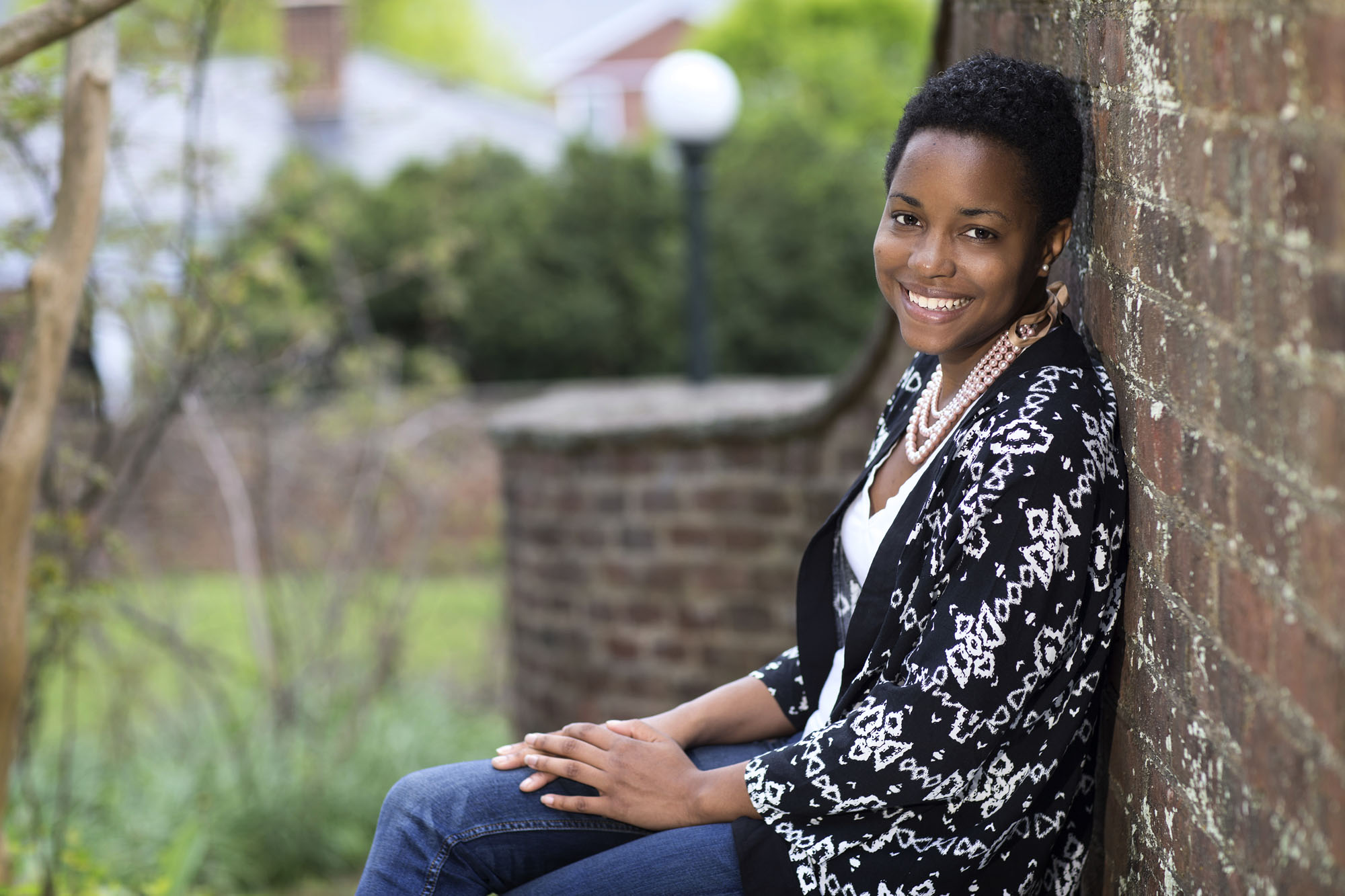Maya Wright is a rarity: a woman in the STEM (science, technology, engineering and math) field. Rarer still, she is an African-American woman in the STEM field.
In 2014, the National Science Board’s annual “Science and Engineering Indicators” report found African-Americans, Hispanics, American Indians and Alaska Natives collectively make up 26 percent of the U.S. population age 21 and older, but accounted for only 10 percent of the United States’ science and engineering workers in 2010.
A new, million-dollar-plus program at the University of Virginia aims to make Wright’s distinction less distinctive. Wright is one of the first recipients of a grant from the Minority Health International Research Training program, created to support outstanding, underrepresented minority students in the field of global, rural health. U.Va.’s Center for Global Health selected nine grant recipients this spring from a national pool of candidates. Some will spend the summer working in St. Kitts and Nevis on diabetes treatment; Wright is returning to Limpopo, South Africa, at the end of the month. She fell in love with the region and public health in the summer of 2013, when she was there on a Water, Society and Health Research Experience for Undergraduates grant.
The Echols Scholar, who graduated from the University on Saturday with a degree in neuroscience, sat down with UVA Today to talk about her transition from the lab to the field.
Q. How did you get interested in public health?
A. I knew I always liked science, but being in the lab just wasn’t for me. I didn’t know there were research opportunities outside the lab. Then I heard about the Research Experience for Undergraduate grants. They are mainly for science majors, so science, mathematics ─ the STEM field. I applied and was so excited when I got it.
I worked in South Africa handing out clay water filters as part of U.Va.’s “PureMadi” project and found out what public health was. I could do research outside of the lab and I was interacting with people and I just really loved it. I realized this is where I needed to be. I want to be doing this kind of work, globally, for the rest of my life.
Q. You worked in Limpopo Province for eight weeks between your second and third years. Can you describe the communities you worked in?
A. We were working in very rural villages and people didn’t speak English. I never really knew what poverty was until I was in these villages. There were dirt roads. Not every house is accessible by car. It is very hilly and people walk everywhere. A lot of the homes are made from clay and dirt with grass roofs. Some are nothing more than aluminum shacks and all of the restrooms are outside. There is no indoor plumbing. This was 2013 and people still didn’t have clean running water in their homes. It really boggled my mind.
Even though there was poverty, it was a rich place, too. People were welcoming and friendly. Even though they were poor, they were surviving and thriving. I loved it and knew I wanted to go back.
Q. You said you were the only African-American student on your first trip to South Africa. What was that like?
A. For me, when you are an American and you are black, you don’t feel completely American. But you’re not African. You are kind of in this middle area. When I was in Africa, I was very aware that I was not African, but I was still black. I was trying to figure out where I fit in. But I really enjoyed my experience and I learned a lot. I guess I just decided that I am a citizen of the world and I would find my home wherever I go.
Q. What will you be doing in Limpopo this summer?
A. After my first visit to South Africa I knew I wanted to go back right away. But I knew I couldn’t afford it. Dr. Dillingham encouraged me to apply to the Minority Health International Research Training program. The research project in South Africa will focus on working with community health workers to better deal with hypertension and traditional medicine and the treatment of HIV. As the graduate student mentor, my job is to help along the undergraduates with their research, be a facilitator between them and their Ph.D. mentors from the University of Venda and to help them to engage the culture and the people. I really want to make sure that they have as good an experience as I did.
I will be mentoring three women and one man. They are from all over the country. One is from Virginia Tech, one is from the University of Washington, one is from Harvard and one is from U.Va. They are all amazing people, ranging from freshman to juniors. They are all African-American. Everyone is bringing something different to the experience and I’m really excited to work with them.
Media Contact
Article Information
May 21, 2015
/content/new-grant-supports-new-grad-s-love-public-health-work-south-africa

